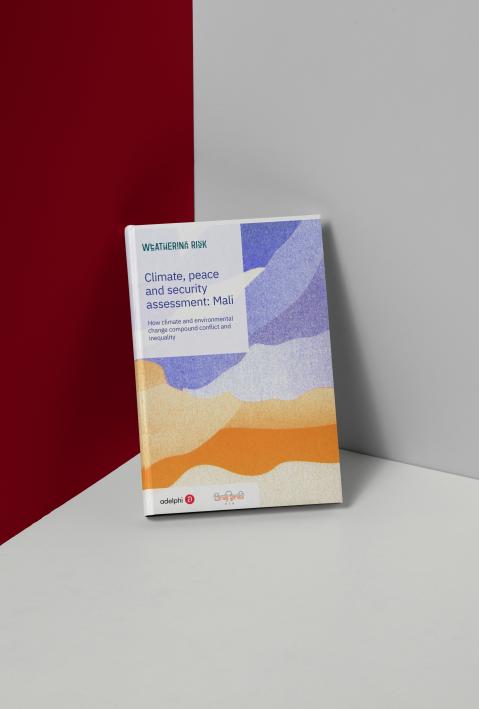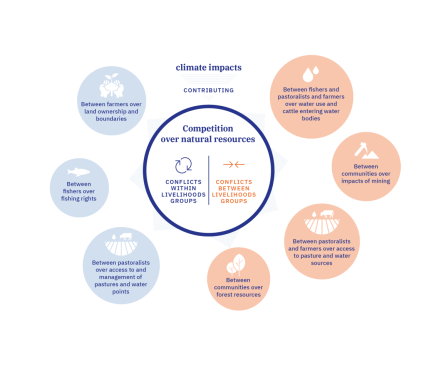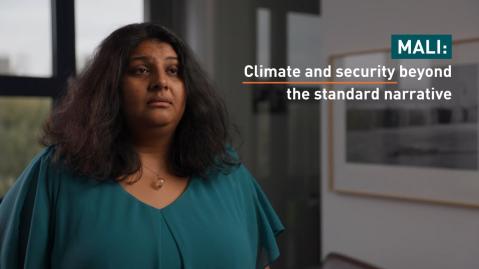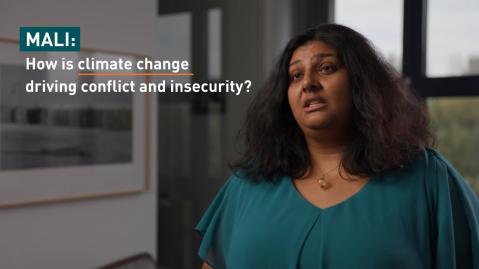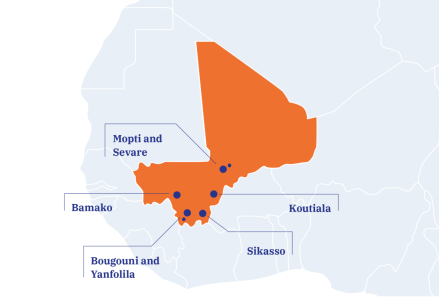Paragraphs
Video
While in Mali, lead author Chitra Nagarajan talked to people about how they perceive the impacts of climate change in their lives.
Image

Quote (without marks)
The many Malians who depend on the land for their livelihoods will need greater support as climate change impacts are felt more strongly. That means better information sharing to support conflict-sensitive climate adaption, more inclusive natural resource management, and support for climate-smart, conflict-sensitive agricultural practices. Where security forces are deployed in UN and other international missions, they should be able to help populations to adapt sustainably to climate change, particularly those who are already socially excluded.
Quotable
Janani Vivekananda
Quotable description
Climate expert and conflict researcher at adelphi
Image
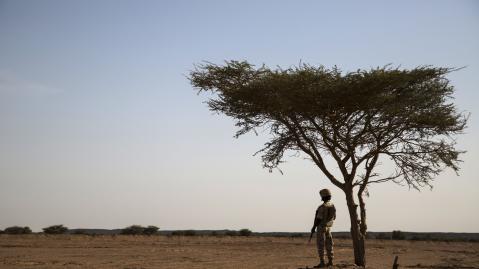
Image

Video
Lead author Chitra Nagarajan explains the four key ways that a warming planet is interacting with an already complex security scenario in Mali.
Cover

Download Publication
PDFs
Download
PDF |
5,5 MB
Fields of Action
Project of this publication
- Date range-RegionsCaribbean,Eastern Africa,Europe,Global,Oceania,Southeastern Asia,Southern Asia,Sub-Saharan Africa,Western AfricaFields of ActionDiplomacy » Climate
